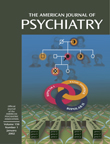The author is a distinguished British pharmacologist. His book is timely in view of the controversy over the medical use of cannabis and the recent U.S. Supreme Court decision against it. The last few lines of the text are from a Lancet editorial in November 1995 to the effect that cannabis is a political football, the evidence is that it is not a hazard to society, but “driving it further underground may well be” (p. 268).
Before he quotes that editorial opinion, Professor Iversen examines cannabis from every angle, beginning with its history. He is a lively writer with a talent for clarity. Any educated reader will understand him, even when he is dealing with pharmacology and physiology. Throughout the book he uses passages from other publications to support and illustrate. In the history portions, he includes users’ firsthand accounts since the early nineteenth century. For centuries man has cultivated and used the hemp plant for purposes other than to extract tetrahydrocannabinol (THC).
Professor Iversen reviewed 158 books, articles, and governmental commission reports. Because the use of marijuana for medicinal reasons has been so controversial for so long, there have been studies commissioned by several countries as well as organizations such as the American Medical Association.
In the chapters on the pharmacology and CNS effects of THC, the psychoactive ingredient in cannabis sativa, Professor Iversen discusses the differences between routes of administration and the effects of THC on various organs as well as motility, posture, and pain sensitivity. He covers naturally occurring cannabinoids, sites of action in the brain, laboratory studies on humans and animals, subjective reports, and the questions of tolerance and dependence.
Next, he addresses the medical uses of marijuana for pain, AIDS wasting, cancer chemotherapy, multiple sclerosis, glaucoma, epilepsy, asthma, mood disorders, and sleep. He gives his conclusions while acknowledging that the subject has not been studied in a scientifically rigorous way. Then he takes up the question of safety. Is marijuana toxic? What about long-term exposure compared with the acute effects? Is it teratogenic? Is there a fetal marijuana syndrome analogous to fetal alcohol syndrome? Professor Iversen weighs in on these and other questions, including the special problem of the fact that smoking marijuana is still the most effective route of administration.
He takes up the recreational use of THC and deals with its prevalence, patterns of use, potency of various preparations, and the question of whether it leads to dependence on it and other illicit drugs. He describes customs of cannabis use in different cultures around the world.
In the final chapter, “What Next?” Professor Iversen reviews the 1944 report commissioned by Mayor La Guardia of New York after cannabis had gained the reputation as a “killer drug” with the help of the Federal Bureau of Investigation (p. 244). Its conclusions were largely ignored by public opinion. Even JAMA blasted it in an editorial. There was a similar study in England reported in the late 1960s and one in Canada a couple of years later. He describes the Dutch Experiment, which decriminalized cannabis use under limited conditions. He discusses the campaign for medical use of THC and the possibilities of developing routes of administration that would be as effective as smoking.
Reading this volume is a perfectly painless way to learn all that you have ever wanted to know about cannabis.

